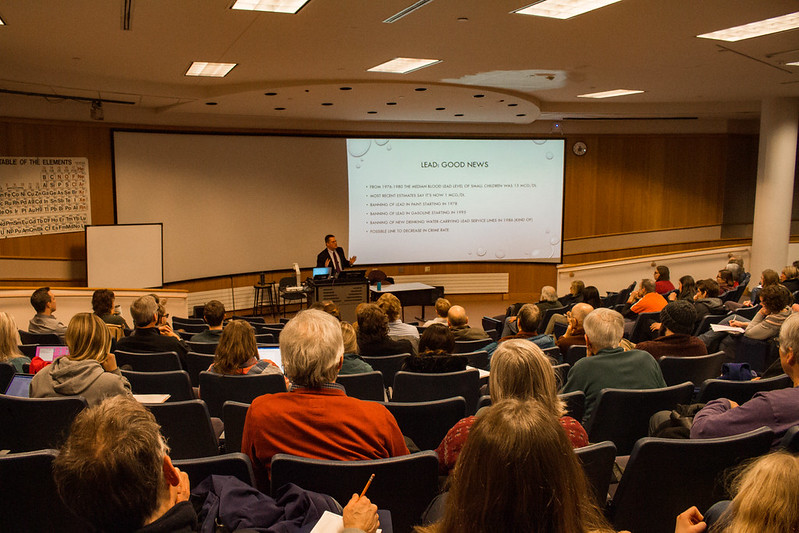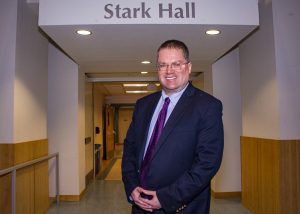 Dr. Matt Bosworth spoke at Winona State University in late February to discuss his time spent in Washington DC this past fall semester, where he worked with the Environmental Protection Agency (EPA) to help get the lead out of residential water supply lines.
Dr. Matt Bosworth spoke at Winona State University in late February to discuss his time spent in Washington DC this past fall semester, where he worked with the Environmental Protection Agency (EPA) to help get the lead out of residential water supply lines.
Bosworth applied to the program through the American Political Science Association where he engaged in a series of applications and interviews to solidify his position working with the EPA. “In my time at the EPA, my main project was to create resource documents for the Office of Congressional and Intergovernmental Relations about what state governments were doing regarding lead in drinking water,” explains Bosworth.
At the end of his time working with the EPA Bosworth was able to turn in his research to the association which provides them with more information that will help in furthering their work on the lead issue.
In recent news, lead in residential water supply has been a topic of discussion; however, there are still unanswered questions when it comes to this concern. In an interview with Bosworth he explains, “It is estimated that there are over 6-10 million lead service lines in the United States; however, we still don’t know where those service lines are located.”
In his discussion, Bosworth explained how the EPA and state governments are proposing new processes of identifying those lead lines and removing them from residential homes, daycare facilities, and schools.
 “This is the first comprehensive proposal from the EPA that has gotten this far in the last 30 years,” explains Bosworth. He describes that although this proposition is a great starting point for this concern, state governments are able to take it even farther to help their populations’ water supply become increasingly safer.
“This is the first comprehensive proposal from the EPA that has gotten this far in the last 30 years,” explains Bosworth. He describes that although this proposition is a great starting point for this concern, state governments are able to take it even farther to help their populations’ water supply become increasingly safer.
Bosworth explains that Winona does not appear to have many leaded service lines; however, this remains a concern for surrounding areas where there may be full lead service lines or fixtures leading into homes, schools, or daycare centers.
“There has been a lot of momentum for doing something that there hasn’t been in the past, but could we go farther, absolutely,” explains Bosworth. He also says, “Although policy advocacy is not really part of my role, as a citizen I hope that the proposed new EPA regulations on lead in water are officially adopted sometime this year.”
For more information call the WSU Communication Office at 507-457-5024.
